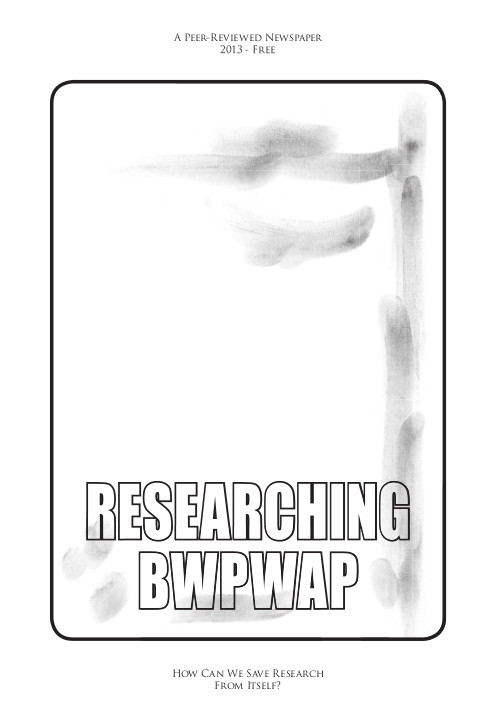Georg Trogemann (ed.): Code und Material: Exkursionen ins Undingliche (2010) [German]
Filed under book | Tags: · algorithm, code, computing, digital art, media art, technology

Algorithmen und digitale Informationsprozesse sind allgegenwärtig – sie nisten in den kleinsten Objekten und durchdringen alle Lebensbereiche. Die digitalen Codes, diese „Undinge” (Flusser), die unsichtbar und im genauen Sinn des Wortes „unbegreiflich” sind, galten anfangs auch in der Kunst als Inbegriff des Immateriellen. Mit ihrer Hilfe sollte der Widerstand des Materials überwunden und die alte physische Welt ersetzt werden durch eine neue virtuelle, die es erlaubt, die künstlerische Idee unverfälscht zu realisieren. Wer sich als Künstler auf die inneren Strukturen des Computers einlässt und zum Beispiel selbst programmiert oder Platinen lötet, für den verwandeln sich die abstrakten Algorithmen und digitalen Codes in reales künstlerisches Material. Die in Code und Material versammelten Arbeiten zeichnen sich dadurch aus, dass Codes, Algorithmen und digitale Informationsprozesse nicht nur für die Umsetzung einer künstlerischen Idee verwendet, sondern die inneren Strukturen der digitalen Maschinen selbst untersucht werden.
– Auswahl aktueller Arbeiten der Medienkunst
– Einführung in das Spannungsverhältnis von Materialität und immateriellen Codes
– Künstlerische und theoretische Positionen zum „Unding” Information
Publisher Springer DE, 2010
ISBN 3709101204, 9783709101209
190 pages
A Peer-Reviewed Newspaper, 2(1): Researching BWPWAP (2013)
Filed under journal | Tags: · art, artistic research, code, design, economy, education, media art, net art, software

“In referring to the cancellation of Pluto’s planetary status in 2006, BWPWAP (Back When Pluto Was a Planet) – the 2013 edition of the transmediale festival – interrogates techno-cultural processes of displacement and invention, and asks for artistic and speculative responses to new cultural imaginaries. In light of this, the conference and workshop Researching BWPWAP took place in November 2012 in Lüneburg, Germany, organised jointly by Leuphana University of Lüneburg, Aarhus University and the reSource transmedial culture/transmediale. The call for participation focused on Ph.D. researchers and other participants to speculate on BWPWAP as a pretext for presenting their research and even to further reflect on its circulation as a meme.
This newspaper presents some outcomes of this process, and like the conference and workshop, can be interpreted in the context of a research culture that has been significantly destabilized by network culture and digital media. If the planet Pluto didn’t exactly fall prey to an epistemological break or a scientific revolution, but rather to a mundane administrative procedure – a redefinition of what constitutes a planet – then what does this say about contemporary research culture? Certainly, much research culture has shared Pluto’s fate: conferences reduced to networking events to foster cultural capital, and scholarly communications reduced to impact factors measured by grant givers. In other words, research is not just about measuring the performativity of a single researcher (the peer-reviewed journal system), but also the processes of questioning, investigating, speculating, and sharing between peers in a broader sense.” (from the Editorial)
Edited by Christian Ulrik Andersen and Geoff Cox
Publisher Digital Aesthetics Research Center, Aarhus University, Aarhus, in collaboration with reSource transmedial culture Berlin/transmediale, Berlin, February 2013
Creative Commons Attribution-NonCommercial-ShareAlike license
ISBN 8791810256
ISSN 2245-7593
PDF, PDF (updated on 2018-9-20)
Comment (0)Convergence 18(3), Special Issue on Locative Media (2012)
Filed under journal | Tags: · gps, locative media, media art, media ecology, mobile technology

“The aim of this special issue of Convergence is to open up conversations about the past, present and possible future directions of locative media, both within the precise context of new media arts as well as across their wider manifestations and contexts of use. It seeks to highlight the continued importance of and need for ongoing and detailed critical engagement with locative media in all its forms.”
With contributions by Andrea Zeffiro, Marc Tuters, Frauke Behrendt, Lars Nyre, Solveig Bjørnestad, Bjørnar Tessem, and Kjetil Vaage Øie, Chris Chesher, Carlos Barreneche.
Guest editor: Rowan Wilken
Publisher SAGE
ISSN 1354-8565
351 pages

